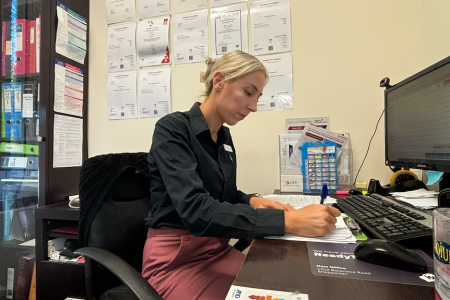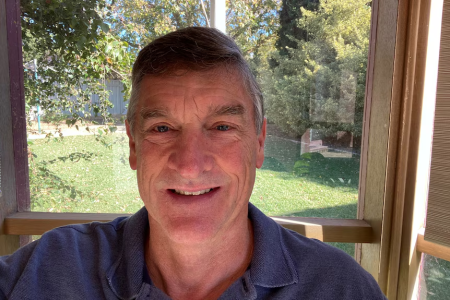Push to extend Victorian pharmacy pilot, but GPs fear for patients' health
By
ABC News
- Replies 0
Medical professionals are at odds over whether a Victorian program that allowed patients to skip the GP and seek treatment from a pharmacist should be extended when the pilot ends in June.
The state government said it provided people, particularly women, with quick and inexpensive access to basic medicine and prescriptions.
But GPs argued it could put patients at risk because pharmacists were not trained to diagnose serious medical conditions that "frequently masquerade as simple symptoms".
Shepparton pharmacist Kate Boswell's pharmacy has participated in Victoria's Community Pharmacist Statewide Pilot since 2023.
It allowed the pharmacy to prescribe treatments for mild skin conditions and uncomplicated urinary tract infections (UTI).
Ms Boswell said the pharmacy also administered vaccines for travellers and helped people by prescribing medication without them having to wait for a GP appointment.
"We had … a bride who was getting married on the weekend and she didn't know what [the rashes on her skin] were, and she just walked in and wanted to show us," she said.
"So we gave her medication, she had her wedding the day after, and then she went off and saw the doctor the following week and [they] confirmed it was shingles."
Ms Boswell acknowledged not all pharmacists would find the pilot suitable and some patients could be concerned about being treated outside of a doctor's office.
Carlie Streeter is a pharmacist based in Horsham, in Victoria's west, who also participated in the pilot.
She said pharmacists had to undertake extra training and the program was "not about replacing the job of a GP".
"We're absolutely working in partnership with them," she said.
"It's about … helping out when there is a need."
Before he travelled to South Africa last December he received a hepatitis B vaccine from Ms Boswell's pharmacy.
"[It was] no different to going to the doctor as far as professionalism goes," Mr Ainsworth said.
He said an expansion of the pilot would benefit regional Victorians.
"It's very hard to get into a doctor in Shepparton if you're a new patient, and if you need a flu shot or something similar, it gives you a lot of options," Mr Ainsworth said.
However, he did have reservations about some treatments.
"I don't know about going to pharmacies for some other things — if I had a UTI I'd have to think about that a bit more, I suppose," he said.
"But for vaccinations, that's a no-brainer as far as I'm concerned."
"The cost effectiveness, the clinical efficiency and the impact of the pharmacy pilot programme remains unclear," she said.
"So in the absence of publicly available evaluation data, we really can't assess whether the programme has delivered value for money or improved healthcare outcomes."
Dr Tomlinson said Victoria's government was fiscally vulnerable and the AMA wanted more focus on improving preventative healthcare, claiming it would save $14 for every dollar invested.
"The existing … public health and wellbeing plan has a number of tensions with the pharmacy pilot, particularly around fragmentation of healthcare and increased access to antibiotics," she said.
Data from the Pharmacy Guild of Australia Victoria branch showed a third of Victorians were likely to pay for pharmacy services to prescribe available medications, rather than wait for a GP.
Pharmacy Guild Victoria branch president George Tambassis said treatments for asthma, nausea and hayfever should be included in the pilot.
"Making the program permanent, and broadening its scope, will give people greater control over their health while easing pressure on GPs and hospital emergency departments," he said.
A Victorian government spokesperson said health funding would be confirmed in the May 20 budget, with a focus on supporting families and frontline health services.
“Women are overwhelmingly reaping the benefits of this pilot, transforming what has previously been a difficult process to access basic UTI care or a quick pill prescription, into a simple and cost effective one,” the spokesperson said.
"Although it may seem like a convenient option for some patients, it can place their long-term health in jeopardy," she said.
"While pharmacists are trained in pharmacy and medicines, their training doesn't include the complexities of assessing patients and making diagnoses.
"Serious medical conditions frequently masquerade as simple symptoms; a UTI may well be herpes, and what looks like eczema can be a sign of underlying disease."
Dr Munoz said the RACGP was also concerned about pharmacists prescribing medications because they stood to profit from it.
She said having pharmacists work within a general practice environment was the "optimal way" to provide care.
"Continuity of patient care, and patient safety, must always come first," she said.
The state government said it provided people, particularly women, with quick and inexpensive access to basic medicine and prescriptions.
But GPs argued it could put patients at risk because pharmacists were not trained to diagnose serious medical conditions that "frequently masquerade as simple symptoms".
Shepparton pharmacist Kate Boswell's pharmacy has participated in Victoria's Community Pharmacist Statewide Pilot since 2023.
It allowed the pharmacy to prescribe treatments for mild skin conditions and uncomplicated urinary tract infections (UTI).
Ms Boswell said the pharmacy also administered vaccines for travellers and helped people by prescribing medication without them having to wait for a GP appointment.
"We had … a bride who was getting married on the weekend and she didn't know what [the rashes on her skin] were, and she just walked in and wanted to show us," she said.
"So we gave her medication, she had her wedding the day after, and then she went off and saw the doctor the following week and [they] confirmed it was shingles."
Ms Boswell acknowledged not all pharmacists would find the pilot suitable and some patients could be concerned about being treated outside of a doctor's office.
Carlie Streeter is a pharmacist based in Horsham, in Victoria's west, who also participated in the pilot.
She said pharmacists had to undertake extra training and the program was "not about replacing the job of a GP".
"We're absolutely working in partnership with them," she said.
"It's about … helping out when there is a need."
No need to wait for a local GP
Kialla West patient Garry Ainsworth participated in the pilot program.Before he travelled to South Africa last December he received a hepatitis B vaccine from Ms Boswell's pharmacy.
"[It was] no different to going to the doctor as far as professionalism goes," Mr Ainsworth said.
He said an expansion of the pilot would benefit regional Victorians.
"It's very hard to get into a doctor in Shepparton if you're a new patient, and if you need a flu shot or something similar, it gives you a lot of options," Mr Ainsworth said.
However, he did have reservations about some treatments.
"I don't know about going to pharmacies for some other things — if I had a UTI I'd have to think about that a bit more, I suppose," he said.
"But for vaccinations, that's a no-brainer as far as I'm concerned."
Questions over cost effectiveness
The president of the Australian Medical Association Victorian branch Jill Tomlinson wanted to see a detailed evaluation of the program before any decision was made to expand it."The cost effectiveness, the clinical efficiency and the impact of the pharmacy pilot programme remains unclear," she said.
"So in the absence of publicly available evaluation data, we really can't assess whether the programme has delivered value for money or improved healthcare outcomes."
Dr Tomlinson said Victoria's government was fiscally vulnerable and the AMA wanted more focus on improving preventative healthcare, claiming it would save $14 for every dollar invested.
"The existing … public health and wellbeing plan has a number of tensions with the pharmacy pilot, particularly around fragmentation of healthcare and increased access to antibiotics," she said.
Pharmacy Guild Victoria branch president George Tambassis said treatments for asthma, nausea and hayfever should be included in the pilot.
"Making the program permanent, and broadening its scope, will give people greater control over their health while easing pressure on GPs and hospital emergency departments," he said.
A Victorian government spokesperson said health funding would be confirmed in the May 20 budget, with a focus on supporting families and frontline health services.
“Women are overwhelmingly reaping the benefits of this pilot, transforming what has previously been a difficult process to access basic UTI care or a quick pill prescription, into a simple and cost effective one,” the spokesperson said.
Conflict of interest
The Royal Australian College of General Practitioners (RACGP) Victoria chair Dr Anita Munoz said the expansion of the community pharmacist pilot was cause for concern."Although it may seem like a convenient option for some patients, it can place their long-term health in jeopardy," she said.
"While pharmacists are trained in pharmacy and medicines, their training doesn't include the complexities of assessing patients and making diagnoses.
"Serious medical conditions frequently masquerade as simple symptoms; a UTI may well be herpes, and what looks like eczema can be a sign of underlying disease."
She said having pharmacists work within a general practice environment was the "optimal way" to provide care.
"Continuity of patient care, and patient safety, must always come first," she said.









